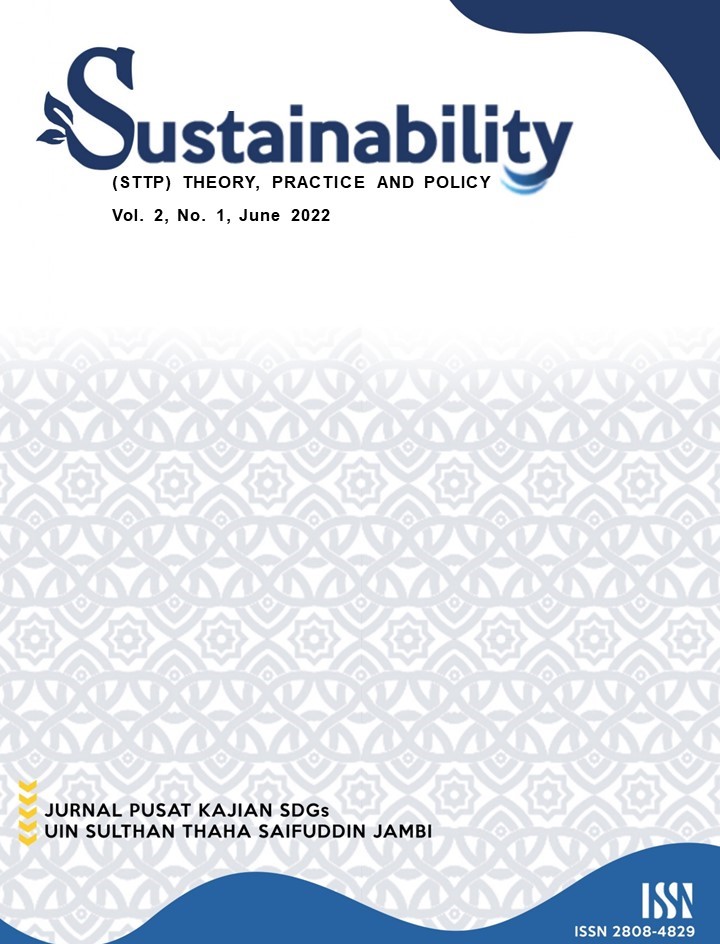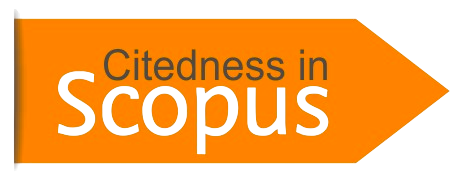Students' Mathematical Beliefs At School That Separate Gender Based On Students' Mathematical Autobiography
DOI:
https://doi.org/10.30631/sdgs.v2i1.1278Keywords:
Education; Gender; Mathematical Autobiography; Mathematical BeliefsAbstract
This study aims to know the change in mathematical beliefs of students grade VII from elementary school until now in Junior High School through students' mathematical autobiography. The research design used in this study is qualitative descriptive. The data were obtained by using questionnaires and interviews. Instruments in this study are researchers as the main instrument, questionnaire about the identity of participants and 20 items of related statements about students' beliefs in mathematics, as well as interview guides as supporting instruments. The statement in the questionnaire is divided into 10 positive statements and 10 negative statements related to mathematics. The results of this study showed that firstly, almost all students, both male, and female, have a decline of beliefs in mathematics learning at the junior high school level. Second, the factors that affect the decreasing level of students' belief in mathematics during the junior high school are the drastic changes in the subject that becomes more difficult and more formulas to be memorized, and many lessons do not use concrete objects. Further, the teachers' attitudes who are also very different from when they are in elementary school which are more comfortable, their social conditions are changed because they live in dorms that have many activities (must be followed) that makes them busy so that they are difficult to find free time to learn outside the school hours. Third, students' beliefs about mathematics learning have shifted from positive to negative or vice versa.
References
Abu-Hilal, M. . (2000). A Structural Model Attitude Toward School Subjects, Academic Aspirations, and Achievement. Educational Psychology, 20, 75–84.
Berry III, R. Q. (2003). Voices of African -American male students: A portrait of successful middle school mathematics students [The Univercity Of North Carolina At Chapel Hill]. In ProQuest Dissertations and Theses. http://pitt.idm.oclc.org/login?url=https://www.proquest.com/dissertations-theses/voices-african-american-male-students-portrait/docview/305314524/se-2?accountid=14709%0Ahttps://pitt.primo.exlibrisgroup.com/openurl/01PITT_INST/01PITT_INST:01PITT_INST??url_
Borg, M. (2001). Teachers' beliefs. ELT Journal, 55(Oxford University Press), 2.
Buehl, M. M., & Alexander, P. A. (2005). Motivation and performance differences in students' domain-specific epistemological belief profiles. American Educational Research Journal, 42(4), 697–726.
Chapman, O. (2008). Self-Study In Mathematics Teacher Education (ICMI, Pape). ICMI.
Chong, S., Wong, I., & Lang, Q. C. (2004). Pre-service Teachers ' Beliefs , Attitudes and Expectations : A Review of the Literature.
Council, N. R. (2001). Adding it up: helping children learn mathematics: Mathematics Learning Study Committee, Center for Education, Division of Behaviorial and Social Sciences and Education, National Research Council. National Academy Press.
Eleftherios, K., & Theodosios, Z. (2007). Students' Beliefs and Attitudes About Studying and Learning Mathematics. Proceedings of the 31 Conference of the International Group for the Psychology of Mathematics Education, 2(1999), 97–104.
Eynde, P. O. P. T., & Corte, E. D. E. (2002). Chapter 2 Verschaffel Framing Students ' Mathematics-Related Beliefs. 13–37.
Goldin, G. A. (2002). CHAPTER 4. 59–72.
Gunderson, E. A., Ramirez, G., Levine, S. C., & Beilock, S. L. (2012). The role of parents and teachers in the development of gender-related math attitudes. Sex Roles: A Journal of Research, 66(3–4), 153–166.
House, J. D. (2006). Mathematics Beliefs and Achievement of Elementary School Students in Japan and the United States: Results From the Third International Mathematics and Science Study. The Journal of Genetic Psychology, 167(1), 31–45. https://doi.org/10.3200/GNTP.167.1.31-45
King, L. A. (2002). Gain without pain? Expressive writing and self-regulation. In S. J. Lepore & J. M. Smyth (Eds.). In The writing cure: How expressive writing promotes health and emotional well-being (pp. 119–134). American Psychological Association. https://doi.org/10.1037/10451-006
Liviananda, F., & Ekawati, R. (2019). Hubungan keyakinan siswa tentang matematika dan pembelajarannya dengan kemampuan matematika. MATHEdunesa Jurnal Ilmiah Pendidikan Matematika, 8(2), 357–364.
McDonough, A., & Sullivan, P. (2014). Seeking insights into young children's beliefs about mathematics and learning. Educational Studies in Mathematics, 87(3), 279–196. http://www.jstor.org/stable/43589882
McLeod, D.B., McLeod, S. H. (2002). Synthesis ” Beliefs and Mathematics Education: Implications for Learning, Teaching, and Research. In: Leder, G.C., Pehkonen, E., Törner, G. (eds) Beliefs: A Hidden Variable in Mathematics Education?. Mathematics Education Library. Springer, 31. https://doi.org/10.1007/0-306-47958-3_7
Muhtarom, M., Juniati, D., Siswono, T. Y. E., & Rahmatika, I. (2018). Teachers' and students' beliefs in mathematics at State Senior High School 5 Semarang. Jurnal Riset Pendidikan Matematika, 5(1), 64. https://doi.org/10.21831/jrpm.v5i1.18734
Nurmi, Anu; Hannula, Markku; Maijala, Hanna; Pehkonen, E. (2003). On Pupils' Self-Confidence in Mathematics: Gender Comparisons. Proceedings Interational Group For The Psychology Of Mathematics Education, 3, 453–460.
OECD. (2013). , PISA 2012 Assessment and Analytical Framework: Mathematics, Reading, Science, Problem Solving and Financial Literacy. OECD Publishing.
Schoenfeld, A. . (1992). Learning to Think Mathematically: Problem Solving, Metacognition, and Sense-Making in Mathematics. in A.D Grouws (Ed). Handbook for Research on Mathematics Teaching and Learning.
Taylor, M. W. (2009). Changing students' minds about mathematics: examining short-term changes in the beliefs of middle-school students. In Swars, S. L., Stinson, D. W., & Lemons-Smith, S. (Eds.). In Proceedings of the 31st annual meeting of the North American Chapter of the International Group for the Psychology of Mathematics Education.














